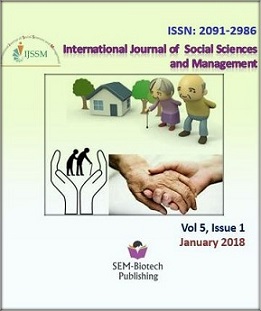Status of the Elderly and Emergence of Old Age Homes in India
DOI:
https://doi.org/10.3126/ijssm.v5i1.18972Keywords:
older adults, old age homes, ageing, experiencesAbstract
There has been a rapid ageing of the earth's population and in a few decades, Asia could become the oldest region in the world. In India, due to the reorganization of the family system, the traditional joint family system is on the decline. Due to the emergence of the nuclear family and the high cost of living, family members who previously cared for the elderly need to find employment outside the home. A rapid increase in nuclear families and an exceptional increase in the number of ‘older adults’ in the country have compelled them to live in old age homes. Literature has accentuated the difficulties and apprehensions experienced by older adults during the ageing process and the need for old age homes in order to create an environment that fosters a meaningful existence for them in their twilight years. India's old age homes are trying to uphold the needs, desires and values of older adults. There is a lack of studies that attempt to give older adults a chance to communicate their experiences in a care home. Older adults are an invaluable resource for younger generations and change is needed in society's attitude towards ageing. This review can help psychologists, social workers and caregivers gain insight into the needs of older adults in terms of mental wellbeing, economic and social security and elder abuse and create awareness among the people.
Int. J. Soc. Sc. Manage. Vol. 5, Issue-1: 1-4
Downloads
Downloads
Published
How to Cite
Issue
Section
License
This license enables reusers to distribute, remix, adapt, and build upon the material in any medium or format for noncommercial purposes only, and only so long as attribution is given to the creator.




